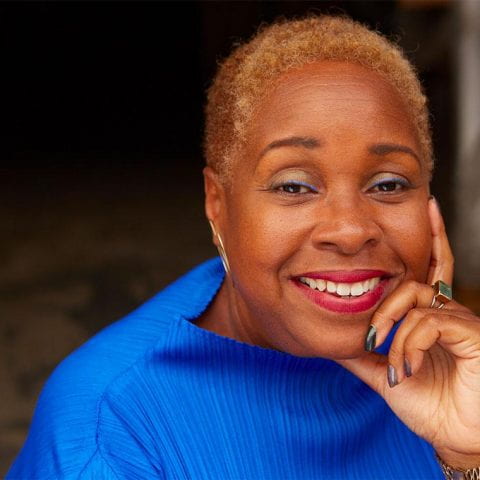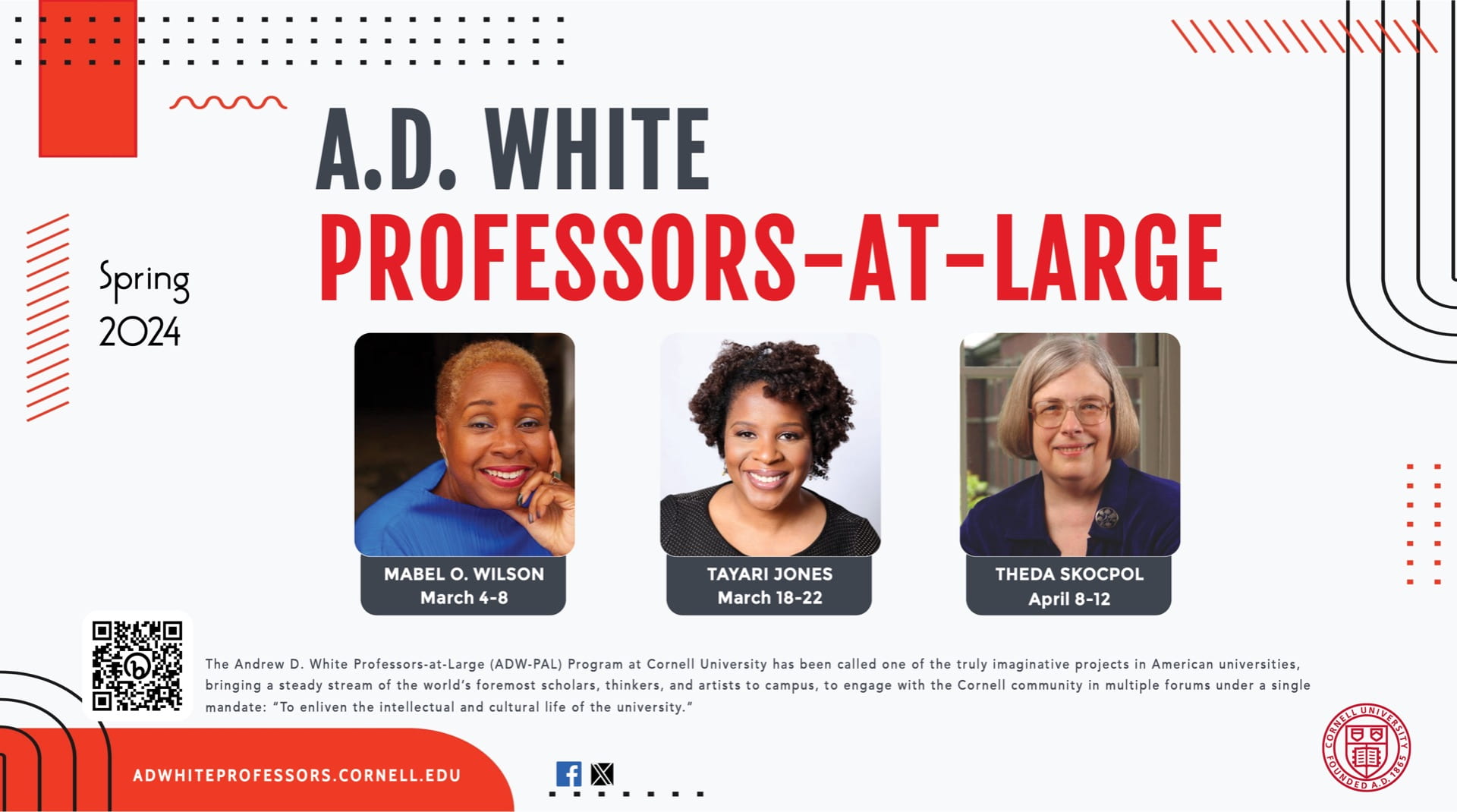Mabel O. Wilson

March 4-8, 2024
SCHEDULE OF EVENTS
“The Living Room: A Conversation with Mabel O. Wilson”
Wednesday, March 6, at 5:00-6:30pm
Milstein Plate (MLS201), Dance Floor
Open to all AAP students and faculty.
“Freedom and Unfreedom: The Construction of Washington City in the District of Columbia”
An A.D. White Professors-at-Large keynote public event
Thursday, March 7, at 5:15pm
Milstein Auditorium, Milstein Hall
Reception to follow in Milstein Hall Dome.
Open to all.
Abstract: In March of 1792, Secretary of State Thomas Jefferson hand wrote an advertisement that he sent to President George Washington and the three Commissioners charged with overseeing the construction of “Washington City in Territory of Columbia.” That announcement advertised a competition for designs of “The President’s House” (White House) and a “Capitol” (U.S. Capitol). All five of these men from Virginia and Maryland, were politicians, planters, and enslavers. Mabel O. Wilson’s lecture will examine how enslaved and free Blacks became essential for the construction of the new federal city, from clearing land to making bricks. This dependency continued after the government arrived in 1800, as a Black work force maintained the city and serviced its white population. Her talk will consider how Washington City’s captive Black population, one that lived intimately with white residents, became a source of financial investment and moral peril. She explores how Black residents–free and enslaved–exploited opportunities of urban life such as greater mobility and “living out” to abscond or to self-purchase. Lastly, how was freedom, spatial practices of liberation guaranteed politically, economically, and juridically, dependent on the unfreedom of Blacks in Washington City?
Preston H. Thomas Memorial Symposium: Labor Un:Imagined
Friday, March 8, at 9:00am-5:00pm
Milstein Auditorium, Milstein Hall, and via Zoom.
Open to all.
Closing remarks by Mabel. O. Wilson, A.D. White Professor-at-Large at Cornell
“Labor Un:imagined” brings together scholars whose research delves into the experiences, actors, and technologies of construction labor and that, in so doing, pushes against the over-imagination and under-representation of building workers in architecture and in the writing of its histories. In a series of panels and conversations, historians of architecture, technology, and neighboring fields will share current work in episodes spanning constructions of freedom and unfreedom in 1800s US and 1950s Brazil; the aspirations and migrations of workers in the building industry in 20th-century Mumbai and 21st-century Mexico; and the ingenuity of female workers in interwar UK and of freed Black workers in colonial Sierra Leone. These and other instances of building labor will shed light on the racial and gender implications of conceptions of skill and technology; on the political economies of manual and mechanical production; and on the adjudication and extraction of architectural value, among other issues. In offering historical nuance and a global perspective to the ever-changing relations of labor on site, speakers will push the debate beyond the better-known relations of oppression to show how, in the ongoing history of architecture at work, a lot more than utopias and exploitations are often at stake. More fundamentally, in sharing the historians’ work and critically pushing its boundaries, the symposium will call for an act of historiographical un-imagination as well—that is, for a reflection on the archives, categories, narratives, and perspectives that have helped write labor out of architectural history to begin with, all the while hiding building stories and building workers in plain sight.
All events are cosponsored by the College of Architecture, Art, and Planning.
Dean Meejin Yoon (College of Architecture, Art, and Planning) serves as faculty host.
Sean Anderson (Associate Professor, Dept. of Architecture) serves as faculty co-host.


